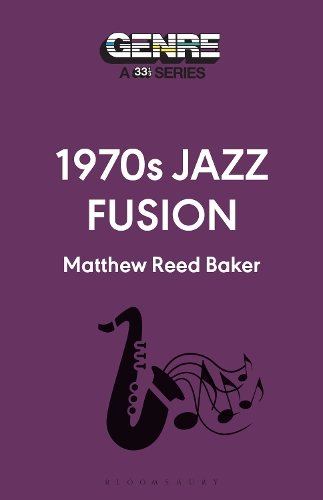
1970s Jazz Fusion
(Paperback)
Publishing Details
1970s Jazz Fusion
By (Author) Matthew Reed Baker
Bloomsbury Publishing USA
Bloomsbury Publishing USA
8th May 2025
United States
Classifications
General
Non Fiction
Music reviews and criticism
History of music
781.6617509047
Physical Properties
Paperback
176
Width 126mm, Height 196mm, Spine 12mm
222g
Description
The once derided musical hybrid that is 1970s Jazz Fusion has since become one of the most influential genres of music in jazz, rock, soul, and hip-hop. From the earliest glimmers of Americas Music going electric, traditional fans accused such legends as Miles Davis and Donald Byrd of contaminating an art form so rich in history and complex in structure with the brazen commercialism and seeming simplicity of new genres like rock, soul, and funk. The accusations of selling out were only compounded by the fact that artists like Herbie Hancock and Chick Corea sold far more records and reached more non-jazz fans in the 1970s with their fusion records than with their straight-ahead jazz records. And yet, that popularity has also brought critical appraisal back around to fulsome praise, thanks to the volume of these hybrid albums being passed down through the generations, inspiring younger generations raised on funk and disco and hip-hop, who saw traditional jazz as a worthy music but one that felt as much an artifact as a living breathing thing that speaks to them today. And in many ways, the influence of jazz fusion streams through to further audiences, thanks to extensive sampling by hip-hop artists like J Dilla and A Tribe Called Quest, repeated shoutouts by funk and electronic artists like The Roots Questlove and Flying Lotus, and fantastic emulations by newer jazz artists like Terri Lyne Carrington, Thundercat, and Kamasi Washington.
Author Bio
Matthew Reed Baker has been a writer and editor for more than 25 years. He was the research and arts editor at Boston Magazine for 14 years and is currently a contributing editor. He has interviewed film directors, authors, choreographers, museum directors, artists, and musicians like David Byrne, Dropkick Murphys, Metallicas Kirk Hammett, Terri Lyne Carrington, Pixies, and Juliana Hatfield. He wrote the magazines backpage column, One Last Question, which covered local topics ranging from the Boston accents uncertain fate to the summertime joy of listening to Donna Summer.
